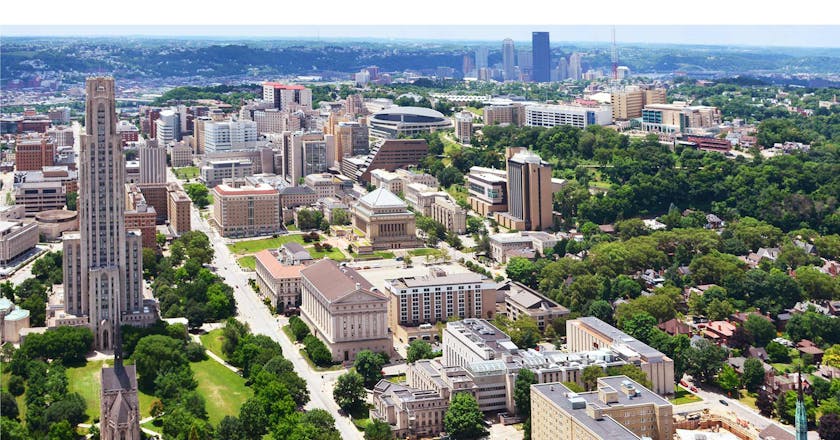Ecosystem Spotlight: 5 questions to… InnovatePGH

The tech ecosystem in Pittsburgh, Pennsylvania, has seen a significant boost in recent years, making it a prime location for startups. With top-notch universities, a lower cost of living, and numerous seed firms and startup accelerators, the city has all the ingredients necessary to become the next hub for startups.
In 2023, the Pittsburgh tech ecosystem is worth more than $23B in combined enterprise value, and it is home to over 530 startups and scaleups. Furthermore, in 2022, Southwestern Pennsylvania-based startups raised $609M in funding, surpassing the amount raised in 2021, despite a slowdown in most tech ecosystems.
Pittsburgh’s AI expertise is a driving force behind the city’s growing startup market. The city’s AI talent pool has grown significantly in recent years, fueled by a partnership between Carnegie Mellon University and the University of Pittsburgh. The universities have invested heavily in AI research and development, attracting top talent from around the world.
The success of Pittsburgh’s AI sector can be attributed in part to the city’s long history in robotics research and development. Carnegie Mellon University has been a leader in robotics for decades and has produced some of the top talents in the field. Robotics startups based in Southwestern Pennsylvania have raised over $1.4B since 2018.
To discuss the region’s singularities, strengths, and ambitions, we sat down with InnovatePGH, a public-private partnership working to accelerate Pittsburgh’s global innovation status. with support from civic leaders, universities, and philanthropies, they aim to boost innovation assets, attract companies, and create talent pathways for all.
What is unique about your ecosystem that you’d like to share with an international audience?
The Pittsburgh Innovation Ecosystem is blessed with having two globally-leading research universities within a 10-minute walk of one another, complimented by a huge academic medical research center! Those three anchor institutions contribute to a naturally-occurring Innovation District, which is a unique strength for us.
Can you provide an example of local initiatives to support your startup community that you feel were successful, and why?
Three initiatives come to mind. The first is our ASTRI (Access to Startups, Tech, Research, and Investment) portal, which we developed in partnership with Dealroom. We continue to push for founders to sign up for the platform, but in the meantime, we are using the platform with our partners to provide critical information about the startup ecosystem. The second initiative was our region’s success in winning ~$63M in grants from the federal Build Back Better Regional Challenge. That money will be used to support the robust innovation economy in Pittsburgh by upskilling the regional workforce, creating a robotics startup accelerator, and connecting other industries to the autonomy sector in the region. Finally, our community partners have seen a lot of success in bringing people to the region to see what is going on in the startup and innovation space. From international events like the Global Clean Energy Action Forum to local, family-oriented events like the Pittsburgh Robotics Network’s Robotics Discovery Day, we are showing different audiences the exciting work happening in the region.
How do you use data to grow and support your tech and investment ecosystem?
My job is to be a super-connector, and I simply cannot do that without information on the startup, investment, and research ecosystems in Pittsburgh. Developing our startup database has empowered me to talk with economic development and funding partners and make connections to growing startups. We are excited about how we can expand our use of that data in 2023!
How do you foster collaboration within your ecosystem as well as externally / internationally?
Within our ecosystem, nothing beats free food and drinks! We convene key stakeholders publicly and privately to craft joint initiatives, keep each other informed, and sometimes just to brainstorm or discuss issues we’re facing. We are getting better and better at engaging external communities, and I think 2023 will see some major advances in that area.
What is the biggest challenge(s) which you hope to solve in the next 5 years?
I believe there is more opportunity in Pittsburgh than anywhere else in the US right now. We have some of the best scientists, engineers, and programmers in the world, but they often do not see the opportunity to build in Pittsburgh. We need to bring the world to Pittsburgh and show them what is happening here – I think investment, talent, and success will stem from that.
Gain more insights on world-leading and emerging startup ecosystems
Subscribe to our Ecosystem Update newsletter. Stay ahead of the curve with key insights, trends and best-practices from around the globe. Every two weeks.
Interested?